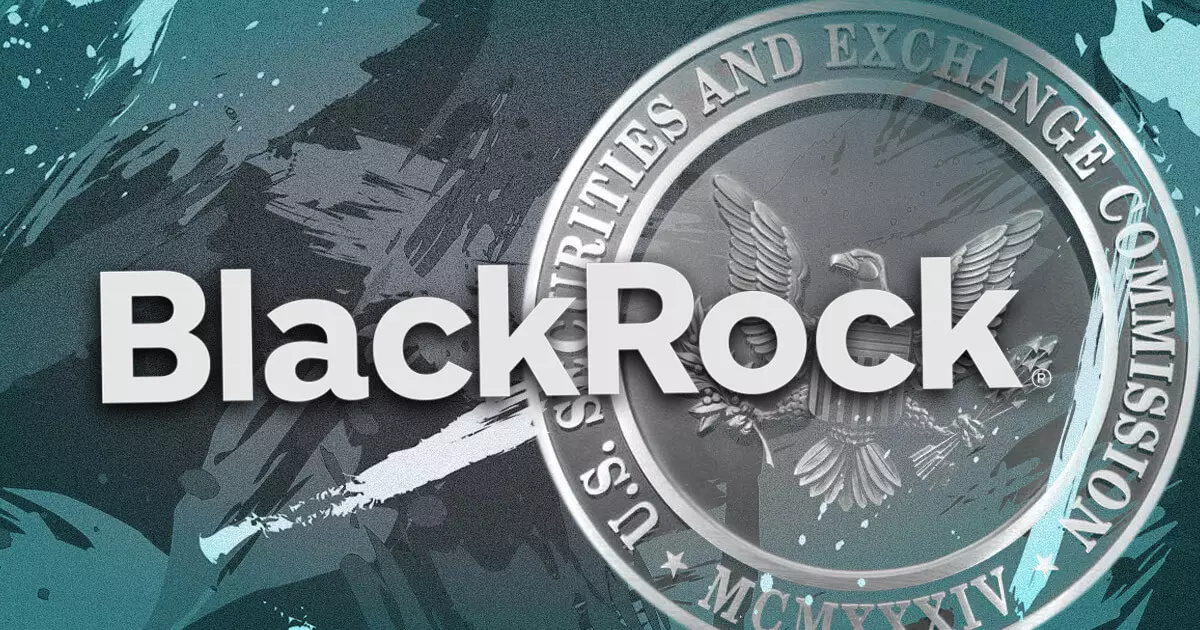BlackRock, a prominent asset manager, has recently submitted an updated amendment to its S-1 filing for the iShares Bitcoin Trust, which aims to launch a spot Bitcoin ETF. This latest filing includes significant changes and additions, reflecting progress made in the ongoing discussions between BlackRock and the U.S. Securities and Exchange Commission (SEC). One notable change is the inclusion of a market ticker, IBIT, for the ETF, indicating its intention to trade on the Nasdaq. This new development is a positive sign as it adds more clarity to the fund’s trading plans.
Changes in Creation and Redemption Models
In its previous filing, BlackRock used a blank field as a placeholder for the ticker. However, the recent amendment provides insights into the creation and redemption models. The original filing stated that the trust would issue and redeem shares in blocks of 40,000 known as “baskets,” with transactions involving Bitcoin. In the updated filing, the language has been modified to state that relevant transactions will occur in exchange for cash. Although Bitcoin transactions are still a possibility, BlackRock acknowledges that in-kind creations and redemptions involving Bitcoin may take place, subject to necessary regulatory approval.
Detailed Transactions and the “Directed Trade Model”
The amendment includes additional paragraphs outlining various transactions between parties. It also introduces the concept of a “Directed Trade Model” for the first time, referring to the purchase, sale, or settlement of Bitcoin between the trust and different counterparties. This model indicates BlackRock’s intention to facilitate efficient trading and liquidity for the ETF, potentially boosting its appeal to investors.
Apart from the significant changes outlined above, BlackRock’s latest amendment also includes minor additions to provide further clarity and address specific areas of interest. One noteworthy addition is an explanation that shares do not represent an interest in or obligation of the fund’s cash custodian (Bank of New York Mellon) and the Bitcoin custodian (Coinbase Custody). This clarification eliminates any confusion regarding the custodians’ responsibilities and the relationship between the shares and such parties.
Risks Associated with the CF Benchmark Index
The recent filing also dedicates a section to potential risks associated with the CF Benchmark Index, which determines the trust’s net asset value (NAV). It highlights that failures or errors at CF Benchmarks Ltd., the entity responsible for calculating the index, could result in losses and costs borne by the trust and its shareholders. This addition underscores BlackRock’s commitment to transparency and providing comprehensive risk disclosures to potential investors.
To further address regulatory concerns, the amendment mentions that Coinbase, the prime execution agent for the ETF, has committed to adhering to sanctions and anti-money laundering (AML) compliance programs. This reaffirms BlackRock’s dedication to regulatory compliance and ensures that the ETF’s operations align with industry standards and regulations.
BlackRock is among several asset managers vying to launch the first spot Bitcoin ETF in the United States. While the SEC has not yet approved any Bitcoin ETF applications, market experts Eric Balchunas and James Seyffart from Bloomberg ETF predict a 90% chance of approval by January 10, 2024. Despite the uncertainties and regulatory hurdles, BlackRock’s latest amendment signifies progress in the regulatory discussions and brings the launch of a Bitcoin ETF closer to reality.
BlackRock’s updated amendment to its S-1 filing for the iShares Bitcoin Trust demonstrates the company’s commitment to launching a spot Bitcoin ETF. The inclusion of a market ticker, changes in creation and redemption models, detailed transaction descriptions, and prudent risk disclosures showcases BlackRock’s dedication to transparency and regulatory compliance. As the asset management giant continues to navigate the regulatory landscape, the possibility of a Bitcoin ETF gaining SEC approval appears more promising than ever.


Leave a Reply